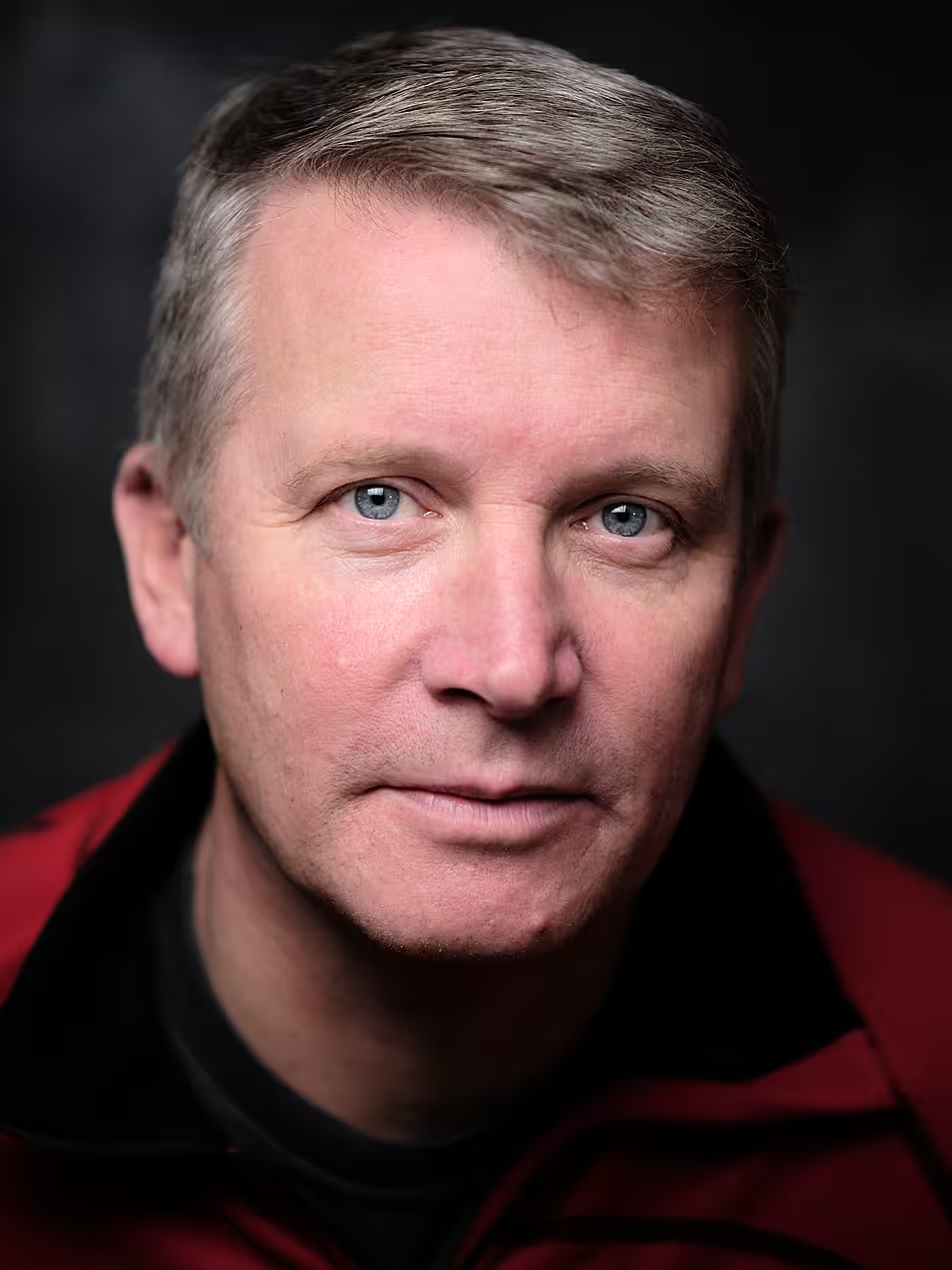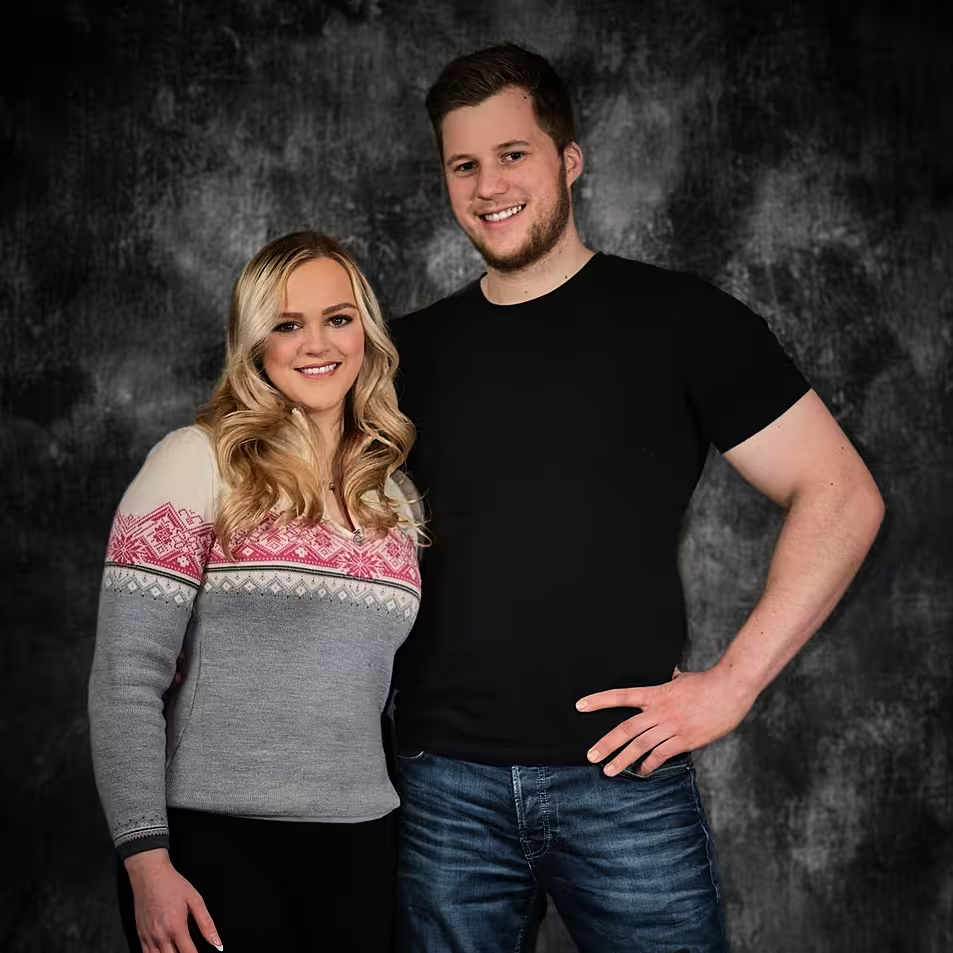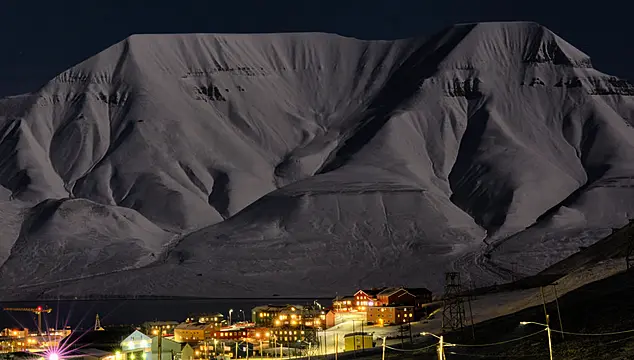Within Arctic and Antarctic circles, months go by where the sun never rises and darkness reigns. This is referred to as the dark season, and in its peak the polar night.
Many think that the absence of familiar cues, day-night cycles and exposure to vitamin D must drain residents and throw their routines off balance, but we have spoken to some people who have experienced the opposite.
A photographer, explorer and two Arctic residents have shared their personal experiences of the dark season with us, and have debunked some common misconceptions about it…
Graeme Chesters

Photographer and researcher Graeme Chesters, 57, looks back at his dark season stint in Svalbard – an archipelago of islands in the Arctic Ocean, located between Norway and the North Pole – with great fondness.
“A lot of people’s initial responses are ‘Oh it must be depressing‘ and tend to imagine it’s like Seasonal Affective Disorder,” says the researcher director at 90 North Foundation. “But, if you’re living in light for six months of the year, there is actually a lot of anticipation about the dark and the spectacles that it gives rise to such as the aurora, the full moon and starlight.

“It doesn’t take very long to understand what a unique opportunity it is, to see the Northern Lights at any time in the day, to be able to see the Milky Way, to see starlight like you’ve never seen it before.”
During his first taste of the polar night two years ago, Chesters found that the community still made a conscious effort to host events to stay connected.
“There are lots of communal events going such as the Blues Festival which marks the start of the dark season,” he reveals. “It becomes a very social time.”
However, residents also enjoy winding down during this period.
“Rather than seeing it as being something to kind of live through, you realise this is something to be enjoyed,” highlights Chesters. “It provides the opportunity to read more books, sit around and wear the thickest, most wonderful woolly jumper that you’ve got.
“I luxuriated in it a little bit. It was profoundly enjoyable in a way that I hadn’t anticipated.”
Pen Hadow

Founder of the 90 North Foundation Pen Hadow, 62, describes his first polar night adventure as “a starry wonder”, which was equal parts challenging and magical.
He led a two-man 30-day sledge-hauling expedition during the polar night across Spitsbergen in early 1990s and distinctively remembers the unrelenting cold.
“From a physiological point of view, the hardest thing was never getting warm… it was rock hard cold with no alleviation during a 24-hour-period,” recollects Hadow. “It made me appreciate the value of what direct sunlight brings to someone or to life.”
However, the explorer was surprised how quickly his eyes adjusted to the darkness.
“Your eyes get used to discerning things at a higher and higher resolution over about four or five days, in my experience,” explains Hadow. “When you first arrive, everything looks white or grey or blue – and it’s a little bit like a fuzzy TV screen.

“But then as your eyes adjust, your brain adjusts to the nature of the information is getting and starts to see patterns that it couldn’t see earlier.”
The explorer describes his epic expedition as a “nugget of gold” that he will always cherish.
“It’s like a little nugget of gold that I have in my back pocket, that I can always go back to it, and while some of it was really uncomfortable and difficult, it’s something very special and unique,” says Hadow.
Bryony and Henrik Hegard

Living in one of the coldest place on earth throughout the dark season isn’t for everyone, recognises Svalbard residents Bryony Hegard, 30, and her husband Henrik, 25 – but they personally adore it.
“Some people do not like dark season because it’s dark and they think it’s depressing – but I think it’s cosy and nice and relaxing,” says Henrik.
“You have to enjoy the dark season to live in Svalbard,” adds Bryony. “If you stick to your routine and are a little bit wacky because you think it’s fun to live in the dark season, then it’s fine.
“I think it’s a really beautiful time of year. We have a lot of candles and cosy lights at home, and make the most out of it.”
In contrast, the couple find the busy tourist season in the summer (where the sun is up 24 hours a day) exhausting.
“You feel overcharged, like a Duracell battery, because you’re running around all the time,” reflects Bryony. “You do eight hours at work, and then come home and it still looks like the middle of the day, so you think I’ll go on a hike and by the time you finish doing everything it’s three o’clock in the morning.
“Whereas in the dark season, you unwind and relax. Everybody’s a bit more friendly with each other because they’ve got time and energy to be more social.”
Although most people socialise indoors during the dark season, there is still plenty of things to do outdoors too, says the couple.
“People go ice climbing or hiking in the mountains socially, or go out and watch the Northern Lights in a group,” shares Bryony.

The biggest secret of all, is that the dark season isn’t very dark.
“It’s probably the best-kept secret because it’s very beautiful, and if you have snow on the ground, moonlight and the Northern Lights and a clear sky, you can see just as well as as if the sun was out,” explains Bryony. “The sky feels bigger and brighter and you can absorb the stars and the Northern Lights more.”
The 90 North Foundation is calling for the Central Arctic Ocean to become an internationally recognised North Pole Marine Reserve, find out more here.







